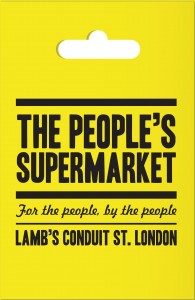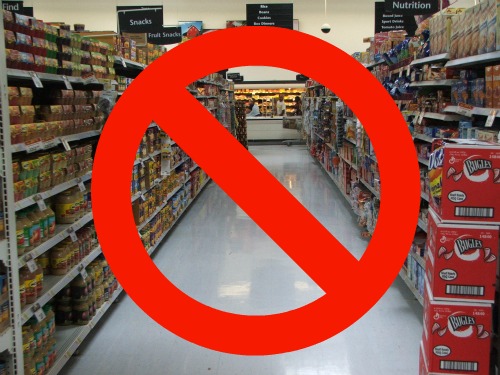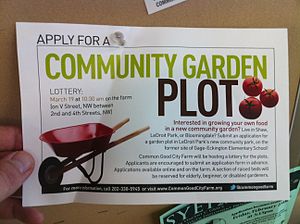Supermarkets are soulless places, aren’t they? All those busy aisles of grumpy shoppers who wield their trolley/pram/wheelchairs like a lethal weapon, diving for the last cut-priced cuts of meat and avoiding the zombie-like members of staff.
This is exactly why they stick the wine aisle at the end of the shop, so you’re driven to bulk buying booze just to recover from the experience.
Oh, and food shopping online isn’t much better. Nothing quite like ordering a food shop only for it all to arrive with a use by date for the next day.
Thankfully, supermarkets are no longer our only option. Obviously, there are your friendly local shops that you should definitely support. But there are a few more shopping options you might like to check out too..
 The People’s Supermarket
The People’s Supermarket
This actually started out as a TV series a year or two ago, but I’ve noticed various versions of the concept springing up all over the place.
These supermarkets are run by communities with members each working a day or two a month. They’re designed to connect urban areas with local farmers. Members of the community decide what stock they want, which the supermarket then orders from local suppliers.
Membership costs vary. The official People’s Supermarket charges £25 a year (which gets you a 10% discount in store). Near me, in Reading, there’s a not-for-profit called True Food Co-Op which does pretty much the same thing and doesn’t charge for membership.
City Farms and Community Gardens
In response to the huge demand for allotments, dwindling garden spaces and an appreciation of the Slow Food way of life, City Farms and Community Gardens are popping up all over the place.
They offer communities the chance to get away from the city and grow some fresh, organic fruit and veg. And they also help empower communities and connect those who may otherwise feel detached. Plus they make the limited green spaces in the cities look beautiful.
Head to Farm Garden to find out where your local city farm or community garden is.
CarrotMob
CarrotMob is a concept that approaches businesses and encourages them to commit to a more eco-friendly way of working. If a business agrees, they have to submit a deal. The agreement might be something along the lines of “If 500 members of CarrotMob turn up and buy something, we’ll commit to spending 50% of the revenue on more eco-friendly machinery”
How Organized Consumer Purchasing Can Change Business from carrotmob on Vimeo.
I love this concept. Boycotting has a negative feel to it, but buycotting? This feels like a positive move where both parties stand to gain.
What alternative ways do you do your food shopping?





 Distance purchases act: a handy guide to buying online
Distance purchases act: a handy guide to buying online Wooden music box with dancing penguins
Wooden music box with dancing penguins Doctor Who craft, crochet and cooking
Doctor Who craft, crochet and cooking Super-geek Wil Wheaton collaborates with J!NX
Super-geek Wil Wheaton collaborates with J!NX RSS
RSS